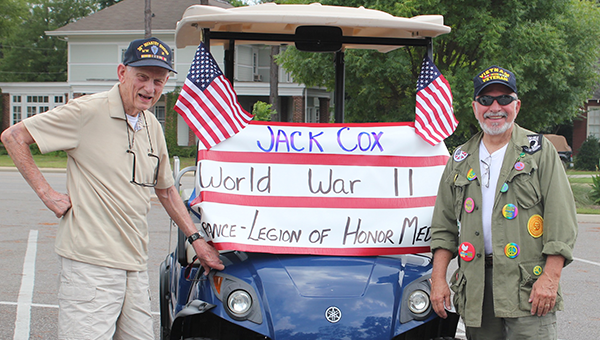Proven innocent? What changed?
Published 2:10 am Saturday, October 9, 2010
There are countless things that are disturbing about Alabama’s top news story this week, the arrest of 11 people in an undercover U.S. Justice Department probe into alleged vote-buying for a failed bingo bill in the Alabama legislature.
One person told me she couldn’t read the 65-page indictment because the language was offensive. Some folks in Montgomery, according to the transcripts of apparent wire-tapped conversations quoted in the indictment, drop the “f-bomb.”
Others are in shock over the dollar amounts promised by lobbyists in exchange for a favorable bingo vote. The value of a “yes” vote, according to the indictment, ranged from $100,000 to $2 million. Pity the poor guy who stands accused in federal court for a mere pittance (5 percent) of what one of his colleagues is alleged to have been promised.
There is, as state Democrats have pointed out, questionable timing in this week’s arrests. The investigation began about 19 months ago; word of the investigation killed the bill in the House last spring; yet the indictments and arrests were announced four weeks before Alabama’s general election.
One of the three legislators who wore a wire tap, we’ve learned this week, has since been appointed to a judge’s bench, despite having less legal experience than anyone else who asked for the job.
But there’s something else I’ve noticed. Lots of folks – including top government officials and some well-respected editorial writers in the state – have assured Alabamians that the accused will have an opportunity “to prove their innocence.”
Excuse me?
Isn’t the assumption that all are presumed innocent until proven guilty in a court of law a basic tenet of American jurisprudence? Somewhere along the way, a lot of us appear to have gotten that part backwards.
There’s another reminder hidden in this story. The Alabama Constitution of 1901 centralizes all power in Montgomery, making members of the legislature extremely powerful. It’s one of the many things that’s wrong with the 109-year-old document, as evidenced by the price lobbyists are accused of being willing to pay for just one vote.
The story revealed this week wasn’t new. People seek to buy votes every day by contributing to legal Political Action Committees that funnel money to candidates, and by contributing directly to campaigns.
Until we change our Constitution and/or our election laws, this story will not change.



